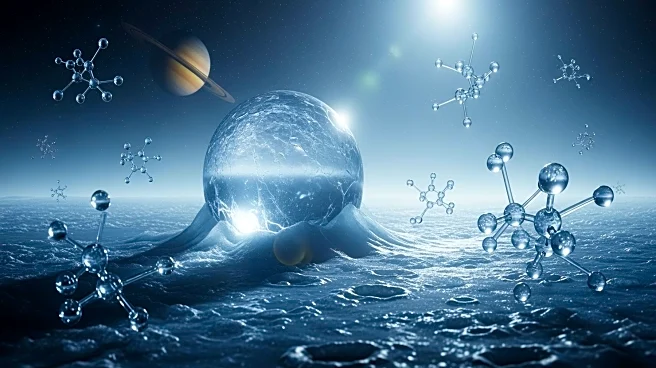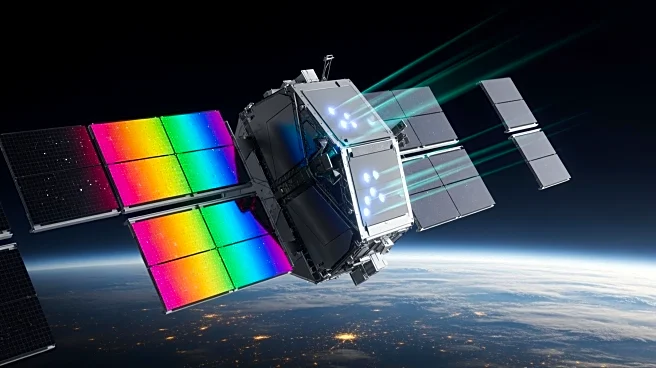What's Happening?
A new study has identified organic molecules spewing from Saturn's icy moon Enceladus, indicating potential habitability within its subsurface ocean. The discovery was made by analyzing data from the Cassini
spacecraft, which flew through the moon's plumes before its mission ended in 2017. The findings have encouraged the European Space Agency to plan the L4 project, aiming to search for evidence of life on Enceladus. The mission, set to launch between 2040 and 2042, will explore the moon's plumes and other Saturnian moons.
Why It's Important?
The discovery of organic molecules on Enceladus is significant for astrobiology, as it suggests the presence of complex chemistry that could support life. This finding enhances the scientific interest in icy moons as potential habitats beyond Earth, driving future exploration missions. The L4 project represents a major investment in understanding extraterrestrial environments, potentially leading to breakthroughs in our knowledge of life's origins and distribution in the universe. The implications for planetary science and the search for life are profound, influencing research priorities and funding.
What's Next?
The L4 mission will focus on sampling Enceladus's plumes and analyzing their composition to assess habitability. As technology advances, new instruments will be developed to detect signs of life more accurately. The mission's success could pave the way for further exploration of icy moons, including Europa, which is also believed to have a subsurface ocean. The findings may stimulate international collaboration in space exploration, as the search for life becomes a shared scientific goal. The results could influence future missions and the development of space technologies.
Beyond the Headlines
The ethical considerations of exploring potentially habitable environments include the risk of contamination and the preservation of extraterrestrial ecosystems. As missions target moons like Enceladus, guidelines for planetary protection will be crucial to prevent biological contamination. The discovery also raises philosophical questions about humanity's place in the universe and the implications of finding life beyond Earth. These considerations will shape the discourse around space exploration and the responsibilities of scientific communities.










